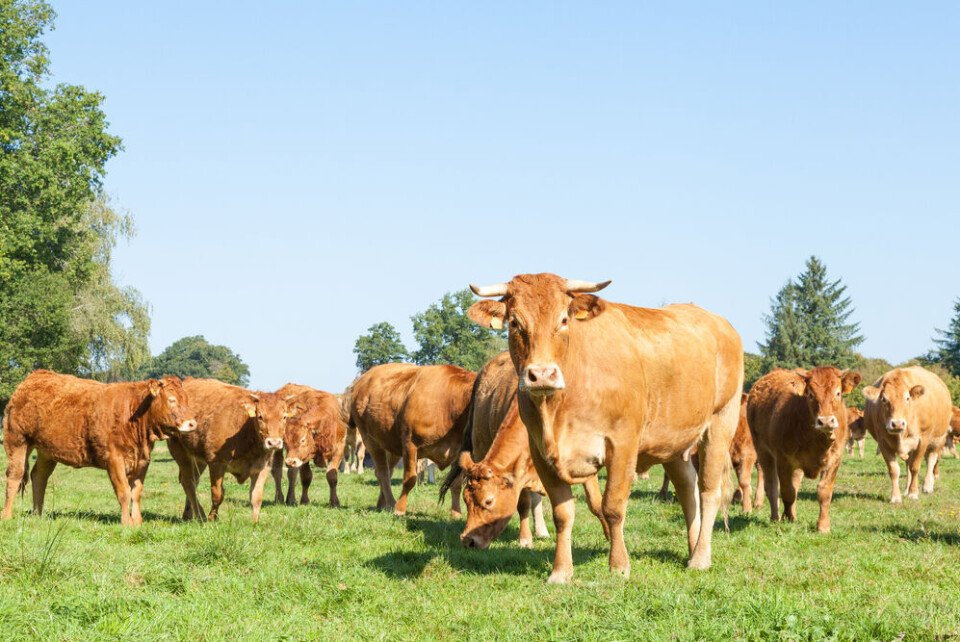-
Roadside noise cameras await approval to start issuing fines for loud vehicles in France
The devices known as meduses already exist in several cities but so far have only been ‘instructional’
-
White storks make strong return in France via nest ‘platforms’ and clipped wings
The Ligue pour la Protection des Oiseaux shares the conservation challenges in saving these birds from extinction
-
Hosting scheme in south-west France lets newcomers sample lifestyle
Households in nine Dordogne communes volunteer under Mes Nouveaux Voisins scheme
‘Cow Covid’ virus spreading fast among cattle in France
Cases have risen from 39 last month to almost 1,200 now. The virus spreads more easily due to climate change, the agriculture minister has said

A disease known as ‘cow Covid’ is rapidly spreading in cattle across France, with state figures suggesting that almost 1,200 outbreaks have been detected on farms so far.
The virus, la maladie hémorragique épizootique (MHE, epizootic haemorrhagic disease), which mainly affects cattle, will require “a rethink of the sanitation and [cattle] health system” in light of climate change, said Agricultural Minister Marc Fesneau on Wednesday, October 25.
From three cases to 1,200 outbreaks
Mr Fesneau said that farmers had been “confronted with this illness for the first time”, after three cases were detected in the departments of Pyrénées-Atlantiques and Hautes-Pyrénées on September 19.
Since then, cases have spread rapidly. “The crisis situation is worsening,” said Mr Fesneau. “We have gone from 39 outbreaks as of September 29 to almost 1,200 on October 20.”
The cases have been reported in the departments of Pyrénées-Atlantiques, Hautes-Pyrénées, Haute-Garonne, Gers, Landes, Ariège, Aude, and Tarn.
MHE does not affect humans. It is spread by biting midges of the Culicoides genus, and mainly affects deer and cattle. It causes significant internal bleeding.
Compensation and healthcare financing
Mr Fesneau said that he was currently evaluating the impact the illness is expected to have on farmers, including for exports, vet costs, losses, and production drops. Government financial compensation is likely to be forthcoming once this has been decided, he said.
“This episode shows that we need to rethink the financing of healthcare in France,” he said. “MHE is an effect of climate change: it was in the south and it is rising in the north.”
However, he said that so far, the situation remains under control, especially as the virus is not normally fatal for cows. It results in death in 90% of cases for deer, but just 1% of cases for cattle.
On infected farms, “the number of animals affected is less than 3%” and “the mortality rate observed remains very low (less than 0.1%)”, the Agriculture Ministry said. “In almost all cases, the care provided enables sick animals to recover within a few days.”
Exports of live cattle have been banned within a radius of 150 kilometres of affected farms, the European Parliament reported.
Recent export waiver agreements between France, Italy and Spain - where any exported cattle must be treated with disinfection procedures to avoid contagion - also mean that the consequences of the outbreak are likely to be contained for now.
Related articles
Noise and smell of cows land French farmer with €100,000 fine
Controversial ‘1,000-cow farm’ opens in the Creuse
‘Cut your cow numbers to help meet climate commitments’, France told
























